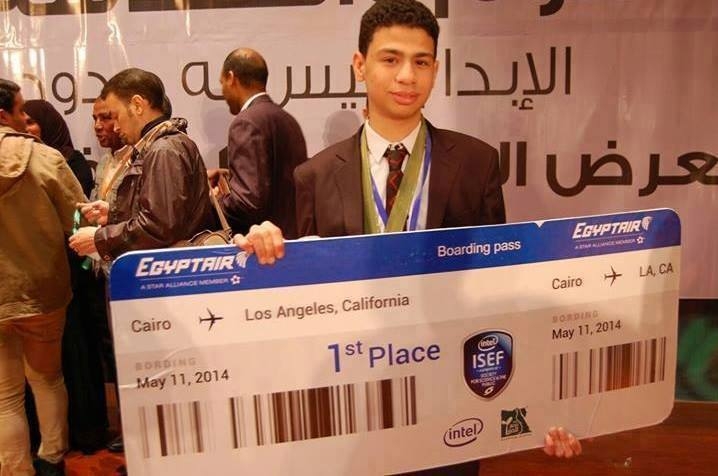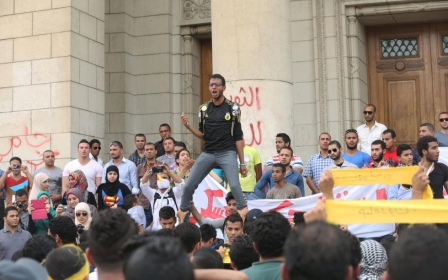Egypt bans student from US science fair over 'Rabaa sign'

CAIRO – Egyptian security authorities on Sunday prevented a high school student from travelling to the US to attend a prestigious international science fair, according to his father.
"Homeland Security officials told Abdullah that they wouldn't allow him to board his US flight even though he had already finished all travel procedures," his father Assem told Anadolu Agency.
Abdullah was travelling to California to participate in Intel International Science and Engineering Fair (Intel ISEF).
He was selected to participate after inventing new computer software that allows disabled persons to write on computer without using their fingers.
According to Intel website, 7 million high school students worldwide develop original research projects every year but only 1,600 of them are invited to the week-long science, technology and engineering fair.
The young innovators share ideas, showcase their researches and compete for more than $4 million in awards and scholarships.
Assem said the US-bound plane had already taken off without his son.
Egyptian authorities were not immediately available to comment.
Abdullah, 17, was at the centre of media attention last month when he was detained for allegedly flashing the now-famous four-fingered Rabaa sign, which commemorates hundreds of supporters of ousted president Mohamed Morsi who were killed in August of last year when security forces violently dispersed their protest camp in eastern Cairo.
The protesters had staged a long-running sit-in after the army ousted Morsi, Egypt's first democratically elected president, following mass protests against him.
Egyptian authorities also accused Abdullah of staging a protest in Cairo without obtaining in-advance permission from the Interior Ministry.
Assem insisted, however, that his son had travelled from the southern province of Assiut to Cairo to finalize his travel procedures.
Egyptian authorities have launched a massive crackdown on Morsi supporters since his ouster.
Middle East Eye propose une couverture et une analyse indépendantes et incomparables du Moyen-Orient, de l’Afrique du Nord et d’autres régions du monde. Pour en savoir plus sur la reprise de ce contenu et les frais qui s’appliquent, veuillez remplir ce formulaire [en anglais]. Pour en savoir plus sur MEE, cliquez ici [en anglais].



